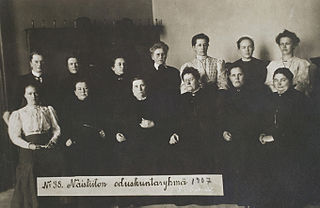
The politics of Malta takes place within a framework of a parliamentary representative democratic republic, whereby the President of Malta is the constitutional head of state. Executive Authority is vested in the President of Malta with the general direction and control of the Government of Malta remaining with the Prime Minister of Malta who is the head of government and the cabinet. Legislative power is vested in the Parliament of Malta which consists of the President of Malta and the unicameral House of Representatives of Malta with the Speaker presiding officer of the legislative body. Judicial power remains with the Chief Justice and the Judiciary of Malta. Since Independence, the party electoral system has been dominated by the Christian democratic Nationalist Party and the social democratic Labour Party.
The recorded history of Guyana can be dated back to 1466, when Guyana de Ojeda's first expedition arrived from Spain at the Essequibo River. The history of Guyana has been shaped by the participation of many national and ethnic groups, as well as the colonial policies of the Spanish, French, Dutch, and British. The African slave rebellions in 1763 and 1823 were seminal moments in the nation's history. Africans were enslaved and transported to Guyana as slaves; in contrast, East Indians came as indentured labourers. Guyana's recent history is characterized in particular by the struggle to free itself from colonial rule, and from the lingering effects of colonialism.

The Nationalist Party is a Christian democratic and conservative political party in Malta. It is one of two major contemporary political parties in Malta, along with the governing Labour Party. The Nationalist Party is currently in Opposition to the Labour Party.

Elections in Guyana take place within the framework of a multi-party representative democracy and a presidential system. The National Assembly is directly elected, with the nominee of the party or alliance that receives the most votes becoming President.

Elections in Zambia take place within the framework of a multi-party democracy and a presidential system. The President and National Assembly are simultaneously elected for five-year terms.
The Westminster Abbey by-election, 1939 was a parliamentary by-election held on 17 May 1939 for the British House of Commons constituency of Westminster Abbey in London.

The Constitution of Guyana is the highest governing document in the Republic of Guyana. It came into effect on October 6, 1980, replacing the constitution enacted in 1966 upon its independence from the United Kingdom. The current Constitution of Guyana contains 12 chapters that are further divided into 232 articles. It also contains a preamble and an oath. Since its 1980 enactment, it has gone through multiple amendments.

General elections were held in British Guiana on 27 April 1953. They were the first held under universal suffrage and resulted in a victory for the People's Progressive Party (PPP), which won 18 of the 24 seats in the new House of Assembly. Its leader, Cheddi Jagan, became Prime Minister.

General elections were held in British Guiana on 12 August 1957. The result was a victory for the faction of the People's Progressive Party led by Cheddi Jagan, who remained Prime Minister.

General elections were held in British Guiana on 21 August 1961. The result was a victory for the People's Progressive Party, which won 20 of the 35 seats.

The 2007 Carlisle City Council election took place on 3 May 2007 to elect members of Carlisle District Council in Cumbria, England. One third of the council was up for election and the council stayed under no overall control.

The National Labour Front (NLF) was a political party in Guyana.

General elections were held in British Guiana in September 1930.

General elections were held in British Guiana in 1892.

The Popular Party was a political party in British Guiana.

The National Democratic Party (NDP) was a political party in British Guiana led by Rudy Kendall.







